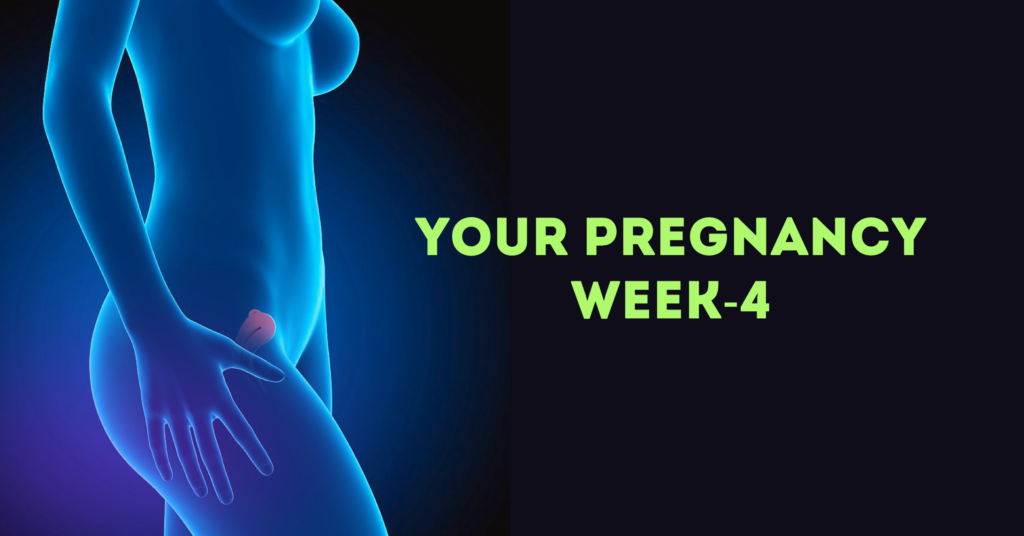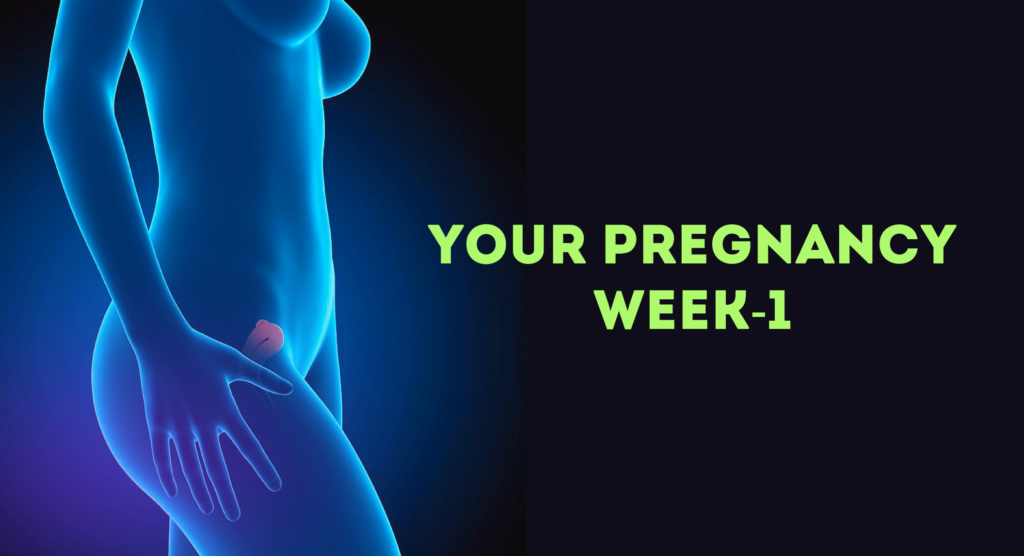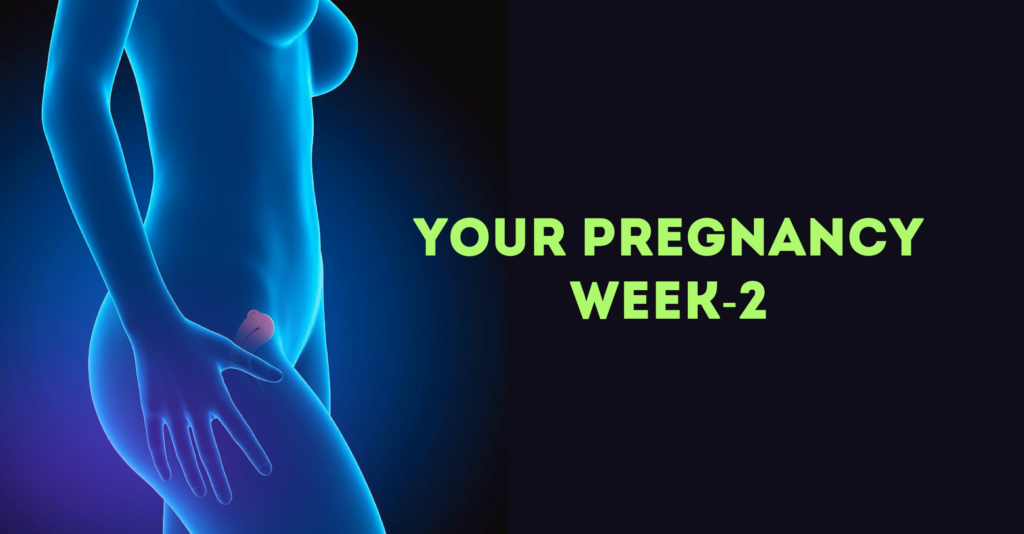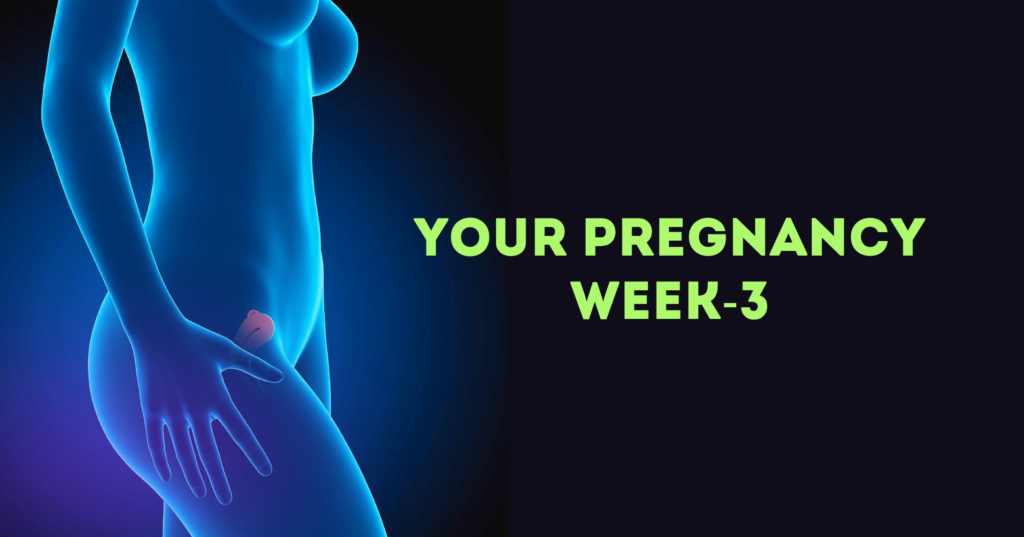Reaching the 4-week mark in pregnancy is a significant milestone! At this stage, you might start noticing early symptoms that indicate your body is preparing for the journey ahead. Your baby’s development is in full swing as they begin to grow from a microscopic ball of cells into a more recognizable form. Let’s explore the key takeaways, symptoms, and tips for both moms and dads during the 4th week of pregnancy.
Key Takeaways at 4 Weeks Pregnant
- Early pregnancy symptoms are becoming more noticeable, such as fatigue, sore breasts, and mild cramping.
- Your baby is now called a blastocyst and is rapidly growing and developing.
- It’s the perfect time to take a home pregnancy test since hormone levels of hCG (human chorionic gonadotropin) are high enough to detect.
- Prenatal care should start now to ensure both mom and baby are healthy as the pregnancy progresses.
Pregnancy Symptoms During Week 4
By the 4th week, your body is producing hormones that can lead to noticeable pregnancy symptoms. Here’s what you might experience:
- Missed Period: This is often the first clear sign that you may be pregnant.
- Mild Cramping or Spotting: You might experience light cramping or implantation bleeding as the embryo attaches to the uterine wall.
- Fatigue: Rising levels of progesterone can make you feel unusually tired.
- Sore or Swollen Breasts: Hormonal changes cause your breasts to become tender, sensitive, or slightly swollen.
- Nausea or Morning Sickness: Some women begin to experience mild nausea or an aversion to certain foods and smells, although this is more common in later weeks.
- Frequent Urination: The increase in blood flow to the kidneys may cause you to make more trips to the bathroom.
Baby Development at 4 Weeks
Your baby’s development is speeding up during week 4:
- Size: The baby is still very tiny, about the size of a poppy seed.
- Blastocyst Stage: The fertilized egg, now called a blastocyst, is embedding itself deeper into the uterine lining.
- Formation of the Placenta: The placenta and the yolk sac are beginning to form, which will supply your baby with nutrients and oxygen.
- Cell Differentiation: Cells are dividing and differentiating into different layers that will develop into the organs, nervous system, and other critical body parts.
- Neural Tube Formation: The foundations for the brain, spinal cord, and backbone are beginning to develop.
Can You Tell You’re Pregnant at 4 Weeks?
Yes, at 4 weeks pregnant, many women can find out they’re expecting. Here’s how:
- Positive Pregnancy Test: Home pregnancy tests can usually detect the presence of hCG in your urine at this stage. For the most accurate results, test in the morning when hCG levels are highest.
- Early Symptoms: Symptoms like a missed period, tender breasts, and light spotting can also give you clues about your pregnancy status.
- Doctor’s Confirmation: A blood test can confirm pregnancy even more accurately if you’re unsure or want to be certain.
Your Pregnant Belly at 4 Weeks
At 4 weeks pregnant, you likely won’t see any changes in your belly just yet. Your uterus is still small, but it’s working hard to create the perfect environment for your baby. You might experience a little bloating or mild cramping, which is completely normal as your body starts adjusting to pregnancy.
Pregnancy Checklist at 4 Weeks Pregnant
Here’s what you should consider doing during your 4th week of pregnancy:
- Start Taking Prenatal Vitamins: Make sure your vitamins include at least 400-600 mcg of folic acid to support your baby’s neural development.
- Schedule a Prenatal Appointment: It’s time to reach out to your healthcare provider to schedule your first prenatal checkup.
- Avoid Alcohol and Caffeine: Limiting or eliminating these substances is best for your baby’s development.
- Stay Active and Eat Healthy: Focus on a balanced diet rich in fruits, vegetables, lean proteins, and whole grains.
- Learn About Pregnancy Health: Begin educating yourself on pregnancy do’s and don’ts to ensure you and your baby stay safe and healthy.
To-Do’s for DAD
Partners also play an essential role during this early stage of pregnancy:
- Be Supportive: Offer emotional and physical support as your partner might be feeling fatigued or nauseous.
- Learn About Pregnancy: The more you know, the more you can be involved in the journey.
- Prepare for Changes: Understanding the early symptoms can help you both adapt to your new reality.
- Celebrate the News Together: If you’ve just found out you’re expecting, take a moment to enjoy this life-changing moment together.
Conclusion
Week 4 is a pivotal time in pregnancy when you might start to notice early symptoms, and the baby’s development is taking off. It’s important to begin prenatal care, stay informed, and focus on healthy lifestyle choices. For dads, being supportive and involved from the start will make a big difference in this journey.
Staying educated about what to expect during each stage will help make your pregnancy as smooth and joyful as possible. Remember to consult with your healthcare provider to ensure you and your baby get the best care throughout this incredible experience.



